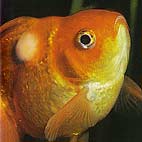Hello,
I am a new member of this forum, and I decided to register so that I can attempt to acquire some advice regarding a health problem with my koi that is really concerning me.
Here is the issue I am facing
I currently own a pond that holds 1398 litres and is home to 16 fish of various sizes and species (Koi, Orfe, Goldfish, Wild tench etc). Recently my yellow Koi which is around 30 centimeters in length started to seemingly grow white circular spots on the body just above the anal fin; they are not cotton-like and do not resemble grains of salt which is often associated with 'white spot'. Initially when they appeared, the fish was still eating very well but over a period of up to 2 weeks it has completely lost it's appetite. In addition to this, it is: rubbing itself against hard objects, is mainly lethargic (although it will occasionally swim but towards the base of the pond) and sometimes it can be seen yawning which I'm told occurs when the fish is trying to remove solids from it's gills, and it now has no interest in consuming food.
Here are numerous photos I have taken to backup what I have stated:


All other fish within the pond are eating well and behavioural changes have not occurred, one exception to this is that they occasionally rub themselves to relieve irritation?. Though, my other koi which is around 40cm in length has a white spot near it's nostrils that is quite similar to the spots found on my 30cm yellow koi.
Action I have taken
I have placed Blagdon's anti-parasitic treatment into my pond to kill possible parasites which are causing various fish to rub against hard objects. I have avoided using any anti-fungus treatments because the white spots appear to resemble 'koi pox' which are not supposed to be treated with any remedies, and they do not appear to be expanding or worsening.
In addition, I have placed some tonic salt within the pond to act as a PH buffer to prevent one source of stress and I have carried out a full test of the water (nitrite, nitrate, ammonia and PH) which indicated the water quality is brilliant.
Is there anything else I should do? Will the Blagdon treatment work effectively or be another source of stress for the ill koi? Should I be looking at treating an internal parasite, which I presume, is more likely to cause loss of appetite?
I am a new member of this forum, and I decided to register so that I can attempt to acquire some advice regarding a health problem with my koi that is really concerning me.
Here is the issue I am facing
I currently own a pond that holds 1398 litres and is home to 16 fish of various sizes and species (Koi, Orfe, Goldfish, Wild tench etc). Recently my yellow Koi which is around 30 centimeters in length started to seemingly grow white circular spots on the body just above the anal fin; they are not cotton-like and do not resemble grains of salt which is often associated with 'white spot'. Initially when they appeared, the fish was still eating very well but over a period of up to 2 weeks it has completely lost it's appetite. In addition to this, it is: rubbing itself against hard objects, is mainly lethargic (although it will occasionally swim but towards the base of the pond) and sometimes it can be seen yawning which I'm told occurs when the fish is trying to remove solids from it's gills, and it now has no interest in consuming food.
Here are numerous photos I have taken to backup what I have stated:


All other fish within the pond are eating well and behavioural changes have not occurred, one exception to this is that they occasionally rub themselves to relieve irritation?. Though, my other koi which is around 40cm in length has a white spot near it's nostrils that is quite similar to the spots found on my 30cm yellow koi.
Action I have taken
I have placed Blagdon's anti-parasitic treatment into my pond to kill possible parasites which are causing various fish to rub against hard objects. I have avoided using any anti-fungus treatments because the white spots appear to resemble 'koi pox' which are not supposed to be treated with any remedies, and they do not appear to be expanding or worsening.
In addition, I have placed some tonic salt within the pond to act as a PH buffer to prevent one source of stress and I have carried out a full test of the water (nitrite, nitrate, ammonia and PH) which indicated the water quality is brilliant.
Is there anything else I should do? Will the Blagdon treatment work effectively or be another source of stress for the ill koi? Should I be looking at treating an internal parasite, which I presume, is more likely to cause loss of appetite?

